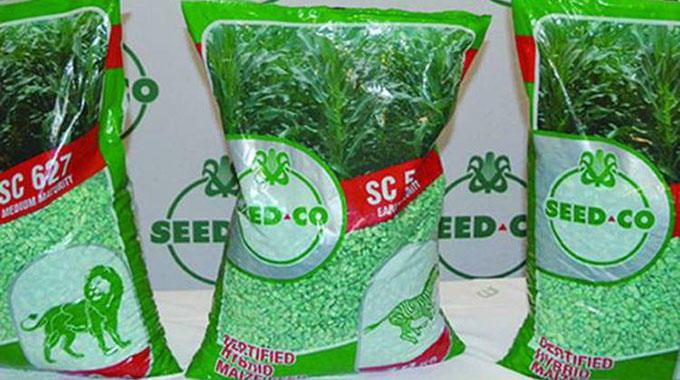SeedCo unveils high-yielding sorghum and millet seeds

SeedCo is investing in hybrid technologies aimed at providing climate-smart traditional grains with high yields and drought resistance to enhance production.
This was revealed by Seed Co Zimbabwe’s Head of Agronomy and Extension Services, Wendy Madzura, during a panel discussion on El Nino and drought mitigation strategies in Zimbabwe.
Madzura mentioned that they are in the process of introducing millet seeds to the market within the next two seasons, alongside sorghum varieties.
“We also have sorghum, red and white sorghum, but we also saw that issues to do with the productivity of these traditional grains have been topical where it turns out to be very low, less than 0.5 tons, so we are now also investing in hybrid technology for small or traditional grains,” she explained.
She further stated, “Right now, we have registered one red hybrid sorghum variety which is also suitable for beer brewing but it can yield up to seven tonnes per hectare. It’s uniform, drought-tolerant, and everything.”
Madzura emphasised that Seed Co is endeavouring to invest in providing hybrid seeds for these small traditional grains to add value to the farmer.
“We are also working on sunflowers. This season we will be having some sunflower seeds available. So, as a private sector, we are diversifying in terms of our production.”
However, she noted a slower adoption rate of new technologies among some farmers who prefer traditional seeds.
“You will find that there are some farmers who are still adamant; they still want to grow some old seed types that they have known over the years that they were raised with. But the new technologies are there that are high yield, drought-tolerant, disease-tolerant, so maybe as the private sector, the impact is on us to make sure that the value proposition that comes with the new product is also appreciated so that at least that switch can happen. But the new seeds are there,” she elaborated.
“In the future, we might need genetics of a particular crop so we believe that we need to maintain and keep reserves for some traditional grains that we have. They are part of us, they define us. But on the other side of it, the reason why hybrid was introduced is to try to increase productivity because some of these traditional seeds that are available, the farmers are failing to get 0.1 of a ton. So, it means in terms of sustainability and achieving the goal of food security, we won’t get there anytime soon.”
“With research efforts, we might be able to have, in time, some varieties that are resistant to those bird attacks and other things. So, hybridisation is good, but yes, knowledge systems need to be maintained as well,” she concluded.






